
PM Reaffirms Support for Khudoni HPP Project
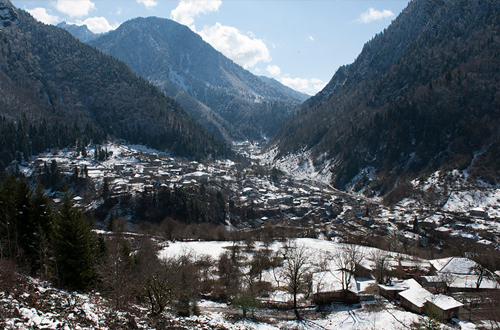
View of the village of Khaishi in the mountainous region of Svaneti about 400 kilometers from Tbilisi. This and several other nearby villages will be flooded if a 200-meter dam is constructed as part of the Khudoni hydropower plant project, fiercely opposed by environmentalist groups and local population; March, 2014. Photo: Eana Korbezashvili
PM Irakli Garibashvili reiterated his support to a large-scale hydropower project, Khudoni, saying that its negative impact will be significantly outweighed by its benefits for country’s energy security.
He said in an interview aired by the public TV on April 19 that the controversial Khudoni HPP project is something that “has to be done by us for our children and future generations”, because it is of “huge importance for our country’s energy independence and security.”
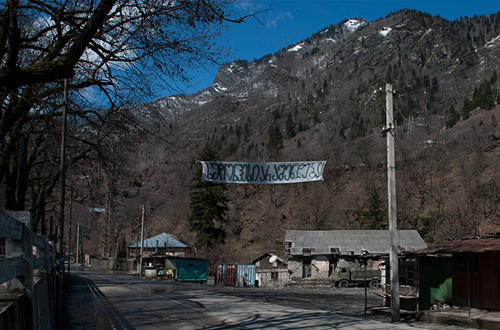
“Khudoni HPP Will Not Be Built” – reads a sign hanging in the Khaishi village, March, 2014. There is a great deal of mistrust among the locals towards the government and the company in charge of project implementation. Although Georgian Dream’s pre-election program contained a provision speaking strongly against of large-scale hydropower plants, after coming into power the GD government threw its firm support behind Khudoni HPP project. Photo: Eana Korbezashvili/Civil.ge
Construction of 700 megawatt hydropower plant, Khudoni, in mountainous region of Svaneti, will involve building of up to 200-meter dam on the Enguri river. The project was first started back in 1980s, but it was halted before the collapse of the Soviet Union. The project was revitalized under former president Mikheil Saakashvili’s administration, which contracted Trans Electrica for the construction of the hydropower plant on a build, own and operate basis.
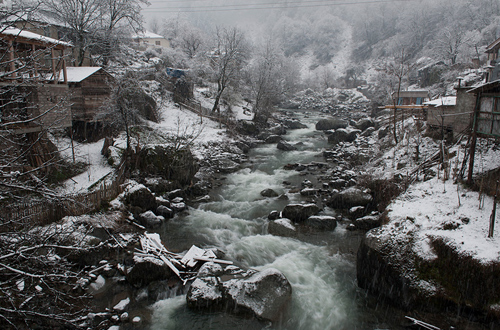
The village of Khaishi, March, 2014. Photo: Eana Korbezashvili/Civil.ge
The current government has also backed the project, but it faces opposition of environmentalist groups, as well as of the local population of the area, which will be directly affected by the project. Construction of the dam will cause flooding of Khaishi and seven other villages, which will require resettlement of about 200 families, according to Trans Electrica.
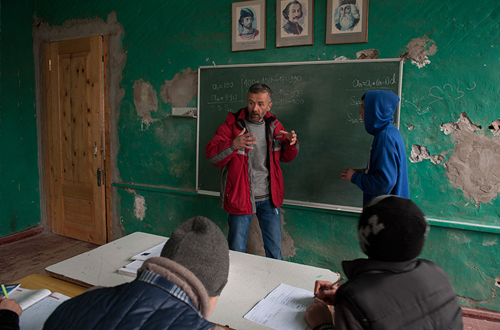
Zurab Nizharadze, a math teacher at Khaishi school, is in the forefront of locals’ opposition to the Khudoni HPP and resettlement; March, 2014. Photo: Eana Korbezashvili/Civil.ge
“We should prove to those people, who still have this sense that it [the project] will damage something, that this is a very important project for our country and for our future. It will bring lots of benefit to each family,” PM Garibashvili said.
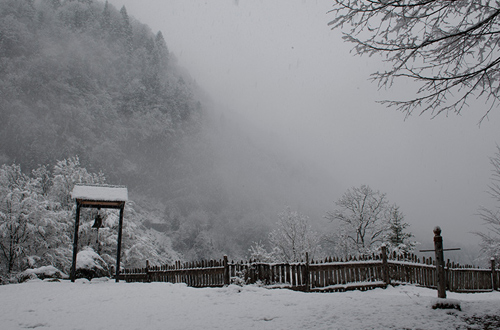
A yard of an Orthodox Church in the village of Khaishi, March, 2014. Photo: Eana Korbezashvili/Civil.ge
“If these people have questions, we should explain them… I know that intensive work continues in this regard, this work is underway with each [local] family in order to remove all their question marks. Of course we will not do anything that may harm the country, or the environment,” he said.
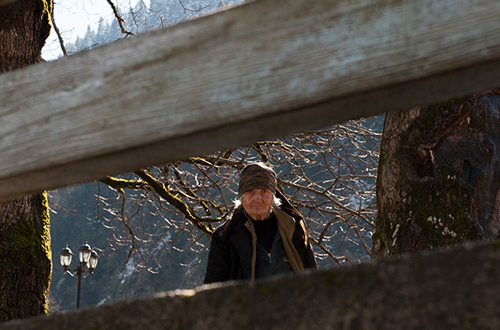
80-year-old resident of Khaishi, Maro Kakhiani, says that not only the local community, but the entire Svaneti region will stand up against such a hydropower project that will flood Khaishi and nearby villages; March, 2014. Photo: Eana Korbezashvili/Civil.ge
“Something will be damaged of course, but it’s all relative – something will be damaged, but lots of good things will be created, which will serve to our citizens and our country, so we should be guided by the interests of the state and not with our personal interests. I understand that this [resettlement] is very painful for them [local population]. I do not rule out having the same reaction if I were one of them,” Garibashvili said.
He also added that locals are offered “large compensations” and resettlement in “nearby areas”, as well as “providing them with all the necessary conditions, which they do not have now.”
This post is also available in: ქართული Русский